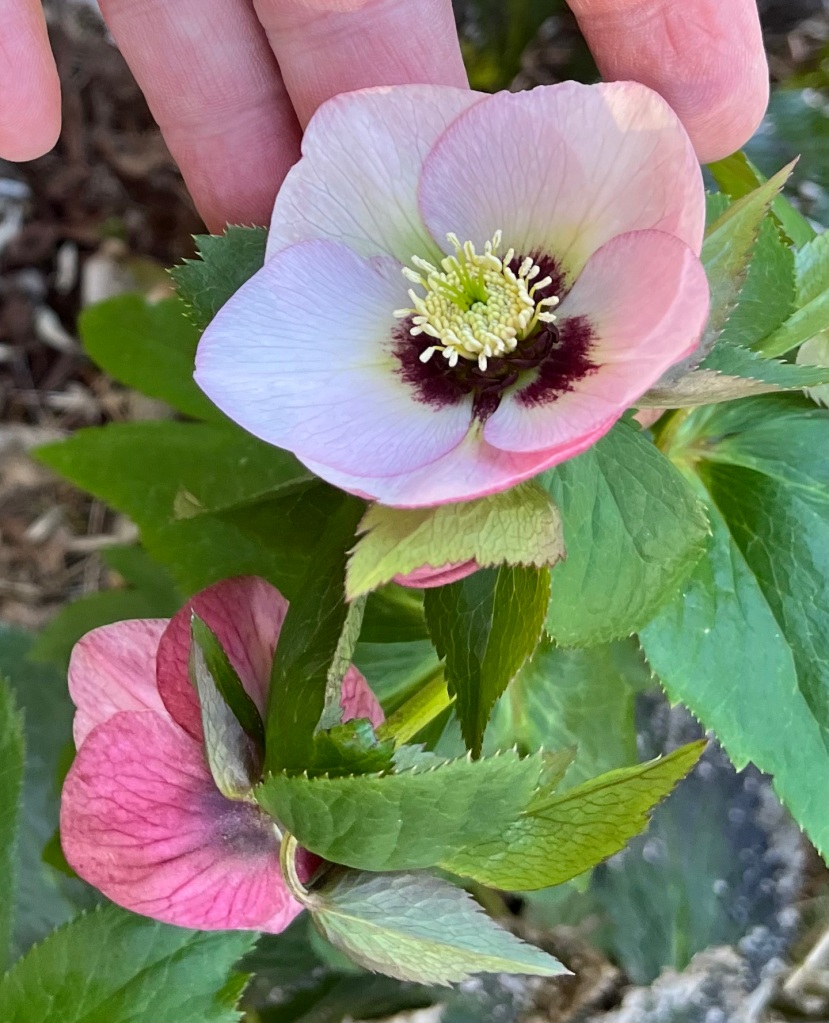We have tulips. We have daffodils. We have sunshine. We have health. We have love. We have what God has intended for us.
And, we have joy. Joy is the outward expression of happiness, which is the inward expression of grace, which is God’s gift to those who remain connected, connected to each other most of all, which is how we remain connected to God.
Yes, of course, as Peter preaches: “God shows no partiality … anyone who … does what is right is acceptable.” And “everyone who believes in [Jesus Christ] receives forgiveness of sins through his name.” All of us are connected among us and with God through our faith in the one who taught us of the ultimate power of love.
God is love, and love is salvation, because love builds up, love creates, love heals, love sustains, love infuses, love is the greatest power God has given us. We sing [Psalm 118: 14-15] with exultation about our victory, we celebrate our righteousness—read that “right ness”—read that “walking in love.”
By God’s grace Paul writes [1 Corinthians 15:1-11] “I am what I am.” All that we are and whatever we are, we are by God’s grace. Remember, God created us in God’s own image. Next time you look in the mirror remember, you reflect the image of God. LGBTQ+ people, by grace, we are who we are, created LGBTQ+ in the image of God. Amen.
Of, course, today is Easter. Today is the Feast of the Resurrection. Today is the celebration of God’s promise to us—wait, even more, it is the celebration of our faith in God’s promise to us—of eternal life in the dimension of love. All we have to do is get it.
In John’s Gospel [20:1-18] it is early Saturday morning, before sunrise the day after the crucifixion, when Mary Magdalene gets up and goes to the tomb. She is ashamed for not having gone earlier to perform ablutions and tend to the body of Jesus. She is consumed with guilt and her own bad feelings. She therefore does not understand when she arrives to find the tombstone rolled away.
She is shocked. She runs to the disciples; note it is Peter and “the one Jesus loved” who come running. It literally says she ran, and then they ran. It says they ran together–connection. Peter and the disciple Jesus loved see that Jesus is gone. The one Jesus loved is first to believe. Love builds up. Love triumphs. Love conquers all.
But Mary Magdalene stood there weeping. Suddenly two angels appeared to ask her why she was weeping, then Jesus himself asks her.
She does not recognize him.
She thinks he’s a groundskeeper.
But when he calls her by name she shifts dimensions, her emotions fall away, and now she sees, now she knows, now she believes. By grace, she is who she is, in God’s image.
For us, as for Mary Magdalene, Peter, and the disciple Jesus loved, salvation comes in the most difficult moments when we are the most confused. All it asks of us is faith, faith in love. If we love enough, we will enter the dimension where love prevails. This is the message of Easter.
Alleluia! Christ is risen!
The Lord is risen indeed! Alleluia!
Easter Day Year B RCL 2024 (Acts 10:34-43; Psalm 118:14-29 Confitemini Domino; 1 Corinthians 15:1-11; John 20:1-18)
©2024 The Rev. Dr. Richard P. Smiraglia. All rights reserved.

